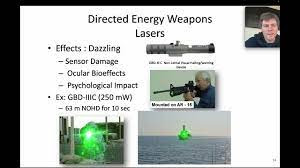Patent No. 3727616 Electronic system for the stimulation of biological systems
Patent No. 3727616 Electronic system for the stimulation of biological systems (Lenskes, Apr 17, 1973)
Abstract
A receiver totally implanted within a living body is inductively coupled by two associated receiving coils to a physically unattached external transmitter which transmits two signals of different frequencies to the receiver via two associated transmitting coils. One of the signals from the transmitter provides the implanted receiver with precise control or stimulating signals which are demodulated and processed in a signal processor network in the receiver and then used by the body for stimulation of a nerve, for example, while the other signal provides the receiver with a continuous wave power signal which is rectified in the receiver to provide a source of electrical operating power for the receiver circuitry without need for an implanted battery.
Notes:
BACKGROUND
OF THE INVENTION
This invention is directed to means for providing a precisely controlled bipolar
current pulse of given polarity, magnitude and duration to a living body for
controlling pain, permitting movement of paralyzed extremities, controlling
spasticity, stimulating paralyzed urinary bladders and preventing atrophy in
clinical applications and for functional and behavioral changes in neurophysiological
applications, for example. The system of the invention utilizes a pulse position
modulation technique for electrically stimulating biological systems such as
nerves, for example, in a manner which presently does not exist. The resulting
stimulation output is a constant current biphasic or monophasic signal. Because
of the digital nature of the inventive system, accurate and reliable current
stimulating levels are achieved with fast rise and fall times. Safety features
have been included in the system to prevent extraneous stimulation due to interfering
signals. When the implanted receiver is not activated by the external transmitter,
any extraneous signals are shunted by a low impedance path in the receiver.
The inventive system is essentially digital in nature, whereas known systems
in the prior art employ analog techniques. In addition, the prior art systems
employ pulse width modulation in which the resulting pulsed radio frequency
signal is detected and filtered to obtain a stimulation waveform. This prior
art method, while simple in nature, has many limitations. For example, it cannot
provide a precisely controlled amplitude because of its dependency on the coupling
coefficient between a primary tuned circuit and a secondary tuned circuit, it
cannot provide a biphasic stimulation waveform nor can it generate a direct
current stimulation. In addition, its unipolar pulses are not rectangular because
an exponential discharge circuit is normally employed. Stimulators of the prior
art are designed for specific applications and lack the parameter versatility
and safety that can be achieved with the inventive system.
SUMMARY OF THE INVENTION
The system of the present invention includes a transmitter that is inductively
coupled by two transmitting coils to a receiver located totally within a living
body. The system of the present invention is sometimes called a "Biostimulator"
and at other times a "Telestimulator". The transmitter, which is located outside
the body, transmits two signals of different frequencies to the receiver via
the two transmitting coils. The dual frequency link of the system provides the
implanted receiver with control signals or operating information and also a
signal from which the receiver can extract its electrical operating power. The
receiver basically comprises two receiving coils, a signal processor and a power
supply. The output of the receiver is coupled to two electrodes via very small
electrical wires which may be attached to a nerve, for example, to stimulate
the nerve or to block it. The desired stimulating pulse characteristics such
as amplitudes, width, interpulse, periods, etc., are initially entered into
the control panel of the transmitter via suitable switches such as rotary thumbwheel
switches, for example. These data are converted to a digital format part of
which is transmitted to the receiver as a 21-bit Amplitude Data Word. This information
is received, decoded and stored by the signal processor portion of the receiver
to provide the proper amplitude reference to stimulate the nerve. The remaining
portion of the data which has been previously entered into the transmitter is
sent to the receiver as a series of Stimulation Words. Each of the Stimulation
Words comprises three 5-microsecond radio frequency (r-f) pulses at substantially
27.12 MHz. The time spacing between the pulses determines the time duration
of the various parts of the stimulating waveform. Each word operates in real-time
to alternately stimulate the nerve with a positive amplitude, a negative amplitude
and a zero amplitude. The transmitter also provides a substantially 100 KHz
continuous wave power signal which is inductively coupled into the power supply
coil in the receiver and rectified to provide electrical power for the receiver
circuitry. The power signal is always present whenever the sytem is in use.
Therefore, it is an object of this invention to provide an electronic system
for the stimulation of biological systems in a living body in the form of an
implantable receiver capable of providing proper stimulation when used in conjunction
with an external transmitter.
Another object of this invention is to provide an electronic system for the
stimulation of biological systems in a living body in which no internal batteries
are utilized nor any direct wire connections into the body are made.
It is a further object of this invention to provide a stimulator system for
a living body wherein a dual frequency external transmitter provides inductively
coupled control and power signals to a compatible receiver located within the
living body.




.jpg)
Comments